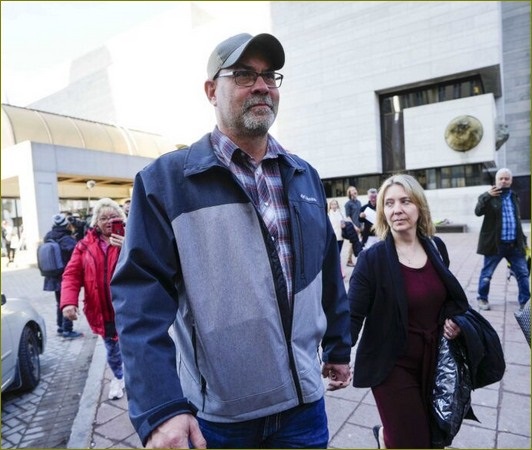No member of the Board had any prior notice or knowledge of this plan and had not been consulted on it. Had the Board been advised of the plan, it would have immediately brought it to an end. Mr. Carpay has acknowledged that he made the decision unilaterally. Apart from the Justice Centre’s Litigation Director, none of the Justice Centre’s lawyers or Board members were aware that this was occurring until July 12.
The Justice Centre’s mandate is to defend Canadians’ constitutional freedoms through litigation and education. Surveilling public officials is not what we do. We condemn what was done without reservation. We apologize to Chief Justice Joyal for the alarm, disturbance, and violation of privacy. All such activity has ceased and will not reoccur in future.
For years, Mr. Carpay has been a tireless advocate for Canadians’ constitutional rights and freedoms. With the integrity that we know him for, he has owned this mistake, openly, directly, and without reservation. Mr. Carpay has advised the Board that, effective today, he is taking an indefinite period of leave from his responsibilities at the Justice Centre. The Board will appoint an interim president to serve in his absence, and has instituted a comprehensive review of Justice Centre operations and decision-making.
Statement by John Carpay, President – July 12, 2021
As has been communicated in the media, I apologized this morning to Chief Justice Joyal in the Manitoba Court of Queen’s Bench for my decision to include him in passive observation conducted by a private investigator at my request, to hold government officials accountable. In an error of judgement, Chief Justice Joyal was included with the observation of government officials.
No other judges were included. Over the last 16 months, Canadians have faced unprecedented restrictions on their Charter-guaranteed freedoms to travel, assemble, associate with others, and worship. The Justice Centre’s mandate is to defend Canadians’ constitutional freedoms through litigation and education.
When public officials breach health orders, as we saw recently with Alberta Premier Kenney’s “Sky Palace” dinner, it is evidence that they do not feel compelled to abide by the same restrictions which they impose on other citizens, often with significant penalties. It was reported to the Justice Centre that Manitoba’s leadership were similarly breaching public health regulations. I made the decision to hire an investigator to ascertain whether this was true.
In no way was this intended to influence or impact the Justice Centre’s litigation efforts, or any of our court cases. This decision was my own initiative, and was not discussed with Justice Centre clients, staff lawyers or Board members.















